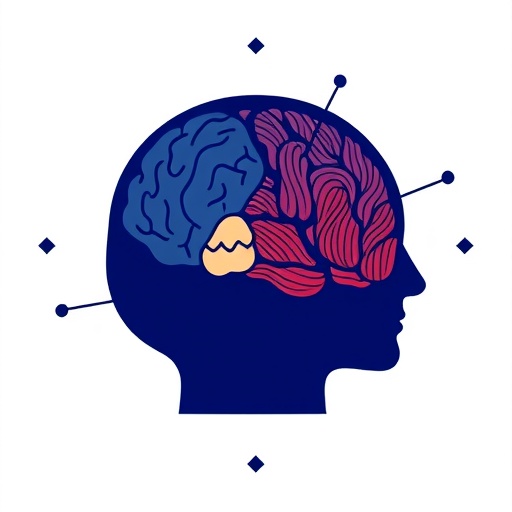The Icahn School of Medicine at Mount Sinai has secured a significant three-year grant totaling $4.5 million from the Breakthrough Discoveries for thriving with Bipolar Disorder (BD²) initiative. This financial support aims to advance the understanding of the neural mechanisms underlying bipolar disorder and to drive the development of pioneering neuromodulation-based therapeutic strategies. The research program is spearheaded by Dr. Ignacio Saez, an Associate Professor specializing in Neuroscience, Neurosurgery, and Neurology, who directs the Human Neurophysiology Laboratory at Mount Sinai.
Bipolar disorder is characterized by unpredictable and disabling mood fluctuations, transitioning between manic and depressive states. Despite the disorder’s profound impact, the precise brain mechanisms driving these shifts remain largely elusive. Dr. Saez and his multidisciplinary team aim to bridge this knowledge gap by leveraging cutting-edge neurosurgical and neurophysiological techniques that can record brain activity with unprecedented precision during these mood state transitions. Their research has the potential to revolutionize future treatment modalities for bipolar disorder through tailored, neuromodulatory interventions.
Central to this project is an integrative approach that combines invasive brain stimulation techniques with detailed clinical and behavioral assessments. The research unfolds across two principal investigative arms, each contributing unique insights into the neurocircuitry involved in mood regulation. The first arm, Deep Brain Stimulation (DBS), overseen by Dr. Helen Mayberg—the Director of the Center for Advanced Circuit Therapeutics—focuses on implanting bilateral DBS electrodes targeting key brain regions implicated in mood dysregulation in bipolar depression patients. Following surgical implantation, a yearlong monitoring phase captures multimodal data including continuous neural signals, patient self-assessments, sleep patterns, video diaries, and periodic magnetic resonance imaging (MRI), establishing comprehensive correlates between neural activity and mood dynamics.
The DBS arm operates in close collaboration with distinguished colleagues including Dr. James Murrough, Director of the Center for Depression and Anxiety, and Dr. Brian Kopell, Director of the Center for Neuromodulation. Their combined expertise supports the pursuit of neuromodulatory markers and therapeutic targets that may ameliorate the debilitating mood swings associated with bipolar disorder. This line of investigation benefits from the convergence of neurophysiological data and patient-reported outcomes, opening new avenues for personalization in psychiatric care.
Complementing the DBS work, the second research arm centers on stereotactic electroencephalography (sEEG), a minimally invasive neurophysiological technique traditionally used to localize epileptic foci. Dr. Saez leads this effort in collaboration with Mount Sinai’s surgical epilepsy program, recruiting patients with complex comorbidities including epilepsy with bipolar disorder, epilepsy with major depression, and epilepsy without mood disorders serving as control subjects. This diverse cohort allows for a broader exploration of cerebral circuits governing executive function and mood regulation.
By employing multi-site intracranial recordings through sEEG, the team aspires to construct a more nuanced map of the brain networks disrupted in affective disorders. Insights drawn from comparing patients with and without mood disorders will potentially unveil novel neuromodulatory targets not accessible through DBS alone. This research is conducted alongside experts such as Dr. Angela Radulescu, psychiatric researcher, Dr. Saadi Ghatan, chair of Neurosurgery at Mount Sinai West, Dr. Fedor Panov, Director of the Adult Epilepsy Surgery Program, and Drs. Lara Marcuse and Madeline Fields, co-directors of the Center for Epilepsy.
The synergy between advanced neurosurgical interventions and rigorous, longitudinal behavioral-tracking methodologies embodies a paradigm shift in understanding psychiatric disease at the circuit level. By isolating specific brain patterns and delineating their temporal evolution with mood states, the Mount Sinai team aims to lay the scientific foundation for precision neuromodulation—tailoring treatments to individual neural signatures and clinical phenotypes in bipolar disorder.
Dr. Saez highlights the interdisciplinary strength intrinsic to Mount Sinai’s research ecosystem, which integrates neuroscience, neurosurgery, and psychiatry. This collaborative environment catalyzes rapid translation of neurophysiological discoveries into clinical applications, addressing the urgent unmet need for effective treatments that mitigate the disabling oscillations in mood that many with bipolar disorder endure throughout their lives.
The broader implications of this research extend beyond bipolar disorder, as the technologies and insights generated may be applicable to other neuropsychiatric conditions characterized by circuit dysfunction. Targeted neuromodulation protocols could evolve to become a cornerstone of personalized mental health care, significantly improving quality of life for patients who have historically faced limited therapeutic options.
Mount Sinai Health System, a leading academic medical institution in the New York metropolitan area, exemplifies a commitment to tackling complex health challenges through an integration of clinical excellence, innovative research, and comprehensive education. With a workforce of 48,000 employees across seven hospitals and numerous outpatient and specialized care centers, the system advances health science and patient care through pioneering techniques—including state-of-the-art neuromodulatory approaches in brain disorders.
This expansive health network continuously leverages emerging technologies such as artificial intelligence and informatics to enhance patient outcomes while maintaining compassionate, patient-centered care at the core of all efforts. Mount Sinai’s consistent recognition in national rankings attests to its excellence and leadership in both medical innovation and clinical services.
The funding from BD² enables Dr. Saez and his team to push the frontiers of neuroscience, bridging the gap between complex brain circuitry and tangible treatment outcomes. Their integrative research approach represents a beacon of hope for those living with bipolar disorder, illuminating a path toward transformative, personalized mental health therapies that could eventually alter the landscape of psychiatric treatment worldwide.
Subject of Research: People
Article Title: Not provided
News Publication Date: Not provided
Web References:
– https://www.bipolardiscoveries.org/
– https://www.thesaezlab.com/ignacio
– https://www.mountsinai.org
References: Not provided
Image Credits: Mount Sinai Health System
Keywords: Bipolar disorder, Depression, Mental health, Deep brain stimulation, Brain stimulation, Neurology, Epilepsy, Psychiatry




